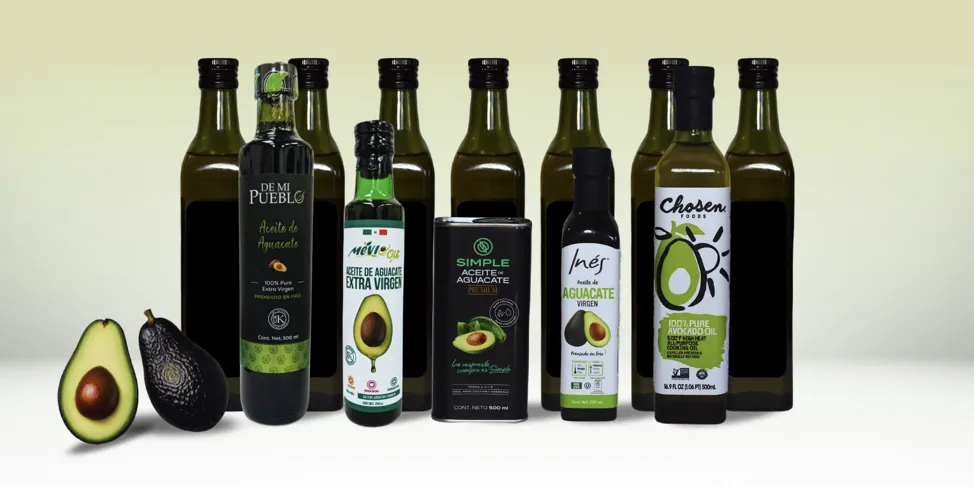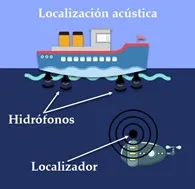By Verónica Patiño-González, Luis Martín Marín-Obispo, Diana Obispo-Fortunato, Álvaro Colin-Oviedo, Daniela Hernández-González, Héctor Plascencia-Villanueva, and Carmen Hernández-Brenes
There are records of food adulteration dating from ancient times, including the most valuable aromatic spices, coffee, meat products, and many other products.
In the history of food regulation, there have been very serious cases in which adulteration has caused considerable harm to consumer health. One of the gravest cases occurred a few years ago in China, where it was discovered that a baby milk formula had been adulterated using melamine, a nitrogen-rich substance used in the ceramics industry. Melamine increases the concentration of uric acid and cyanuric acid in the blood, which causes the formation of kidney stones, resulting in renal failure and even death (Xiu and Klein, 2010, Zhao and Lin, 2014). Incredible though it may seem, the purpose of this economic fraud was to simulate an increase in the protein content of milk and resulted in the death of six infants and the hospitalization of 52,857 for renal complications (World Health Organization, 2008; Chan et al., 2008, Xiu and Klein, 2010).
In the case of cooking oils, there are also stories of adulteration, mainly of oils with scientifically backed health properties.
Olive oil, for example, has suffered serious and publicly denounced fraud. Its adulteration resulted in a loss of consumer confidence in the industry and regulatory authorities. Unfortunately, it is not easy for consumers to distinguish adulterated oil because some labels do not specify the food’s actual ingredients and consumer protection measures are in the hands of government agencies.
What is a food hazard related to economically motivated adulteration?
In recent years, the U.S. government’s Food and Drug Administration (FDA) introduced a new category of agents that can harm human health called “Economically Motivated Hazards” (FDA, 2023).
Within this category of hazards, we find cases in which harmful substances are substituted or added to a food, with the purpose of increasing the apparent value of the product and obtaining economic benefits, as in the case of proteins substituted by melanin in dairy products.
Similarly, there is economic fraud that can deprive consumers of micronutrient intake and food components that are crucial to long-term health.
Food adulteration can negatively impact our health
We might think that adulteration in edible oils is harmless to the consumer because “only” blends are made with other lower-priced vegetable oils. However, the problem may be more serious. In Spain, an economically motivated fraud caused the death and illness of hundreds of people who consumed olive oil mixed with inedible rapeseed oil (Gelpí, 2002).
Adulteration begins when the nutritional label does not bear the correct list of ingredients (does not comply with labeling regulations), so consumers do not know what they are ingesting. For example, we could be consuming an allergen or an oil of lower nutritional value with a different macro- and micronutrient profile. The consumer, in addition to being exposed to potential hazards by consuming an oil that is not authentic, loses health benefits.
Avocado oil situation
In recent years, the avocado oil market has experienced significant growth due to demand for its health benefits, flavor, and high temperature stability. As shown in Figure 1, there is strong scientific evidence that avocado oil has multiple benefits for human health.

HEALTH BENEFITS
| CHARACTERISTICS | HUMAN STUDIES | ANIMAL STUDIES |
| Neutral, smooth, creamy flavorAllows for cooking at high temperatures (<250 °C) without changing its composition | Source of healthy fats with high nutritional valueRegulates blood cholesterol and triglyceride levelsImproves absorption of carotenoids (pro-vitamin A) | Regulates glucose levelsSource of antioxidantsHelps control blood pressure |
Similar to olive oil, the production cost and market value of avocado oil are higher than those of other oils, making it very susceptible to adulteration for economic purposes. Its adulteration with other less healthy fats can undermine consumer efforts to ingest nutrients and functional natural compounds.
What are the authorities in Mexico and the world doing about the authenticity of avocado oil?
In our country, regulations have been enacted to guarantee the authenticity of avocado oil. In 2021, a new standard, NMX-F-811-SCFI-2021, was approved to regulate its composition (Secretariat of Economy, 2021).
In addition, Mexico and the United States chair a working group in an international body, CODEX Alimentarius (CODEX), which is working on a global purity standard for avocado oil. It is anticipated that this effort will generate a worldwide identity standard in the near future. Recently, the CODEX Alimentarius working group (2021) was able to establish a fatty acid pattern characteristic of avocado oil that can help identify edible avocado oils that do not meet established standards.
Research at Tec de Monterrey on the authenticity of avocado oil
Prior to the approval of the new regulations, the National Association of Edible Oils and Fats Industries in Mexico and Tecnológico de Monterrey conducted a research in 2021 that included the analysis of avocado oil brands marketed in Mexico. According to the fatty acid profile analysis, most avocado oils in the Mexican market were adulterated, as evidenced by their fatty acid profile (Marín-Obispo et al., 2022).
In order to contemplate the impact of the new regulation, a new sampling was conducted in 2023 that included several brands of avocado oil sold in the Mexican market.This new research was conducted after approval of the Mexican regulation (NMX-F-811-SCFI-2021) and the CODEX composition proposal (2021). The study focused on verifying the compliance of commercial avocado oils with the fatty acid profiles established in both compositional standards.
Methodology
Edible oils were sampled in different cities following the methodology described in Figure 2.

Results
The fatty acid profiles of the twelve brands of commercial avocado oils investigated are shown in Table 1. The brands that did not comply are identified by number since this scientific study does not seek to discredit brands but to raise awareness of the problem. However, to demonstrate that it is possible to produce authentic foods, Table 1 shows the names of the five brands that stood out for maintaining a fatty acid profile characteristic of 100% pure avocado oil pursuant to the rigorous standards of Mexican regulation.
The five brands that adhere to fatty acid profile guidelines not only comply with the new legislation but also meet the mandatory nutritional labeling requirements established in NOM-051-SCFI/SSA1, correctly specifying the declaration of their main ingredients (Secretariat of Health, 2020).

Of the twelve brands of avocado oil that were analyzed, only five met the fatty acid profile expected in avocado oil pursuant to Mexican regulations (Table 1). These results are alarming because some of the edible oils analyzed do not appear to be avocado. For example, two brands showed a fatty acid pattern similar to that of another vegetable oil whose retail price is up to eight times lower than that of avocado oil.
Figure 3 shows the products that had an authentic 100% avocado oil footprint based on their fatty acid profiles.

The results are consistent with recent publications from the University of California-Davis, which found that many of the oils marketed in the United States are adulterated (Green and Wang, 2020, 2023). They also found in their sampling that commercial oils did not have the fatty acids characteristic of avocado oil. Nor do they contain adequate vitamin E and phytosterols, which are natural fruit compounds with solid scientific evidence of their role in reducing cholesterol in humans. Consistent with the present study, the authors also documented adulteration with soybean, safflower, and unidentified oils ranging from 50% to 100% in blends (Green and Wang, 2020, 2023).
Why and how to select authentic products?
The greatest advantage of consuming an authentic product is that we obtain benefits for human health. By buying these authentic products we promote fair and transparent trade, contributing to the permanence of 100% pure Mexican avocado oils in the market.
It is difficult for a consumer to identify adulterated oil. To facilitate detection, carefully examining the culinary properties of avocado oils is recommended. These properties include its characteristic mild and creamy flavor, which should not change or generate rancid flavors when cooked at high temperatures, which can be an indicator of thermal instability (Seaman, 2009; Woolf, 2009; Tao, 2019). In addition, it is important to consider the smoking point, which is the lowest temperature at which smoke is generated. A true avocado oil must withstand high temperatures when frying food without generating smoke (Oji and Vivian, 2020). It may also be useful to compare prices if they are well below the range commonly observed for avocado oils.
Likewise, if it is suspected that the label of an oil is not correct or there are doubts about its authenticity, the authorities* can be notified so that they can verify the product by taking confirmatory laboratory measurements. Finally, the information stated on the label, the list of ingredients, date and place of manufacture, contact information, and container conditions (the packaging should not be transparent) should be checked.

*In Mexico, government authorities have official contacts that you can use to report possible food adulterations for formal investigation: COFEPRIS 800 033 5050, in Nuevo León: 818 130 7000. WhatsApp anonymous hotline: 811 773 5075
About the authors
The authors belong to the School of Engineering and Sciences at the Tecnológico de Monterrey, Monterrey Campus.
Corresponding authors
M.C. Verónica Patiño-González is an associate professor in the Department of Sustainable and Civil Technologies.
Dr. Carmen Hernández-Brenes is a research professor in the Department of Bioengineering and the Institute for Obesity Research.
Co-authors
Dr. Luis Martín Marín-Obispo, LCA. Diana Obispo-Fortunato and Dr. Álvaro Colin-Oviedo are researchers at the Biotechnology Center-FEMSA.
Daniela Hernández-González and Héctor Plascencia-Villanueva are chemical engineering students.
References
- Ahmed, N., Tcheng, M., Roma, A., Buraczynski, M., Jayanth, P., Rea, K., Akhtar, T. A., & Spagnuolo, P. A. (2019). Avocatin B Protects Against Lipotoxicity and Improves Insulin Sensitivity in Diet-Induced Obesity. Molecular Nutrition and Food Research, 63(24), 1900688. https://doi.org/10.1002/mnfr.201900688
- Carvajal-Zarrabal, O., Nolasco-Hipolito, C., Aguilar-Uscanga, M. G., Melo-Santiesteban, G., Hayward-Jones, P. M., & Barradas-Dermitz, D. M. (2014a). Avocado oil supplementation modifies cardiovascular risk profile markers in a rat model of sucrose-induced metabolic changes. Disease Markers, 2014. https://doi.org/10.1155/2014/386425
- Carvajal-Zarrabal, O., Nolasco-Hipolito, C., Aguilar-Uscanga, M. G., Melo Santiesteban, G., Hayward-Jones, P. M., & Barradas-Dermitz, D. M. (2014b). Effect of dietary intake of avocado oil and olive oil on biochemical markers of liver function in sucrose-fed rats. BioMed Research International, 2014. https://doi.org/10.1155/2014/595479
- Cervantes‐Paz, B., & Yahia, E. M. (2021). Avocado oil: Production and market demand, bioactive components, implications in health, and tendencies and potential uses. Comprehensive reviews in food science and food safety, 20(4), 4120-4158. https://doi.org/10.1111/1541-4337.12784
- Chan, E., Griffiths, S., & Chan, C. (2008). Public-health risks of melamine in milk products. Lancet (London, England), 372(9648), 1444-1445. https://doi.org/10.1016/S0140-6736(08)61604-9
- CODEX Alimentarius (2021). Informe de la 27.a Reunión del Comité del CODEX sobre Grasas y Aceites, FAO. https://www.fao.org/fao-who-codexalimentarius/sh-proxy/en/?lnk=1&url=https%253A%252F%252Fworkspace.fao.org%252Fsites%252Fcodex%252FMeetings%252FCX-709-27%252FREPORT%252FFinal%2BReport%252FREP22_FOs.pdf
- De Oliveira Marques, S., Muller, A. P., Luciano, T. F., Dos Santos Tramontin, N., Da Silva Caetano, M., Luis Da Silva Pieri, B., Amorim, T. L., De Oliveira, M. A. L., & de Souza, C. T. (2022). Effects of Avocado Oil Supplementation on Insulin Sensitivity, Cognition, and Inflammatory and Oxidative Stress Markers in Different Tissues of Diet-Induced Obese Mice. Nutrients, 14(14), 2906. https://doi.org/10.3390/nu14142906
- Del Toro-Equihua, M., Velasco-Rodríguez, R., López-Ascencio, R., & Vásquez, C. (2016). Effect of an avocado oil-enhanced diet (Persea americana) on sucrose-induced insulin resistance in Wistar rats. Journal of Food and Drug Analysis, 24(2), 350–357. https://doi.org/10.1016/j.jfda.2015.11.00
- FDA (2023). 21 CFR 117.130 Current good manufacturing practice, hazard analysis, and risk-based preventive controls for human food. https://www.accessdata.fda.gov/scripts/cdrh/cfdocs/cfcfr/CFRSearch.cfm?fr=117.130
- Fulgoni, V., O’Neil, C., & Nicklas, T. (2017). Avocado Consumption by Adults is Associated with Better Nutrient Intake, Diet Quality, and Some Measures of Adiposity: National Health and Nutrition Examination Survey, 2001-2012. Internal Medicine Review, 3(4). https://doi.org/10.18103/imr.v3i4.422
- Furlan, C. P. B., Valle, S. C., Östman, E., Maróstica, M. R., & Tovar, J. (2017). Inclusion of Hass avocado-oil improves postprandial metabolic responses to a hypercaloric-hyperlipidic meal in overweight subjects. Journal of Functional Foods, 38, 349–354. https://doi.org/10.1016/j.jff.2017.09.019
- Gelpí, E., de la Paz, M. P., Terracini, B., Abaitua, I., de la Cámara, A. G., Kilbourne, E. M., Lahoz, C., Nemery, B., Philen, R. M., Soldevilla, L., & Tarkowski, S. (2002). The Spanish toxic oil syndrome 20 years after its onset: A multidisciplinary review of scientific knowledge. Environmental Health Perspectives, 110(5), 457-464. https://doi.org/10.1289/ehp.110-1240833
- Green, H. S. and Wang, S. C. (2020) ‘First report on quality and purity evaluations of avocado oil sold in the US’, Food Control, 116, p. 107328. https://doi.org/10.1016/j.foodcont.2020.107328.
- Green, H. S., and Wang, S. C. (2023). Purity and quality of private labelled avocado oil. Food Control, 152, 109837. https://doi.org/10.1016/j.foodcont.2023.109837.
- Marín-Obispo, L.M., Patiño-González, V. Obispo-Fortunato, D.J., & Hernández-Brenes C. (2022). La nueva huella de identidad del oro verde mexicano: ¿Cuáles aceites de aguacate son 100% puros? TecScience. https://tecscience.tec.mx/es/divulgacion-ciencia/cuales-aceites-de-aguacate-son-100-puros/.
- Márquez-Ramírez, C. A., Hernández de la Paz, J. L., Ortiz-Avila, O., Raya-Farias, A., González-Hernández, J. C., Rodríguez-Orozco, A. R., Salgado-Garciglia, R., Saavedra-Molina, A., Godínez-Hernández, D., & Cortés-Rojo, C. (2018). Comparative effects of avocado oil and losartan on blood pressure, renal vascular function, and mitochondrial oxidative stress in hypertensive rats. Nutrition, 54, 60–67. https://doi.org/10.1016/j.nut.2018.02.024
- Oji, A., & Vivian, I. C. (2020). Extraction and Characterization of Selected Carrier Oils. Chemical Science International Journal, 29(2), 48–54. https://doi.org/10.9734/csji/2020/v29i230163
- Ortiz-Avila, O., Esquivel-Martínez, M., Olmos-Orizaba, B. E., Saavedra-Molina, A., Rodriguez-Orozco, A. R., & Cortés-Rojo, C. (2015). Avocado Oil Improves Mitochondrial Function and Decreases Oxidative Stress in Brain of Diabetic Rats. Journal of Diabetes Research, 2015. https://doi.org/10.1155/2015/485759
- Ortiz-Avila, O., Figueroa-García, M. del C., García-Berumen, C. I., Calderón-Cortés, E., Mejía-Barajas, J. A., Rodriguez-Orozco, A. R., Mejía-Zepeda, R., Saavedra-Molina, A., & Cortés-Rojo, C. (2017). Avocado oil induces long-term alleviation of oxidative damage in kidney mitochondria from type 2 diabetic rats by improving glutathione status. Journal of Bioenergetics and Biomembranes, 49(2), 205–214. https://doi.org/10.1007/s10863-017-9697-9
- Ortiz-Avila, O., Sámano-García, C. A., Calderón-Cortés, E., Pérez-Hernández, I. H., Mejía-Zepeda, R., Rodríguez-Orozco, A. R., Saavedra-Molina, A., & Cortés-Rojo, C. (2013). Dietary avocado oil supplementation attenuates the alterations induced by type I diabetes and oxidative stress in electron transfer at the complex II-complex III segment of the electron transport chain in rat kidney mitochondria. Journal of Bioenergetics and Biomembranes, 45(3), 271–287. https://doi.org/10.1007/s10863-013-9502-3
- Salazar, M. J., El Hafidi, M., Pastelin, G., Ramírez-Ortega, M. C., & Sánchez-Mendoza, M. A. (2005). Effect of an avocado oil-rich diet over an angiotensin II-induced blood pressure response. Journal of Ethnopharmacology, 98(3), 335–338. https://doi.org/10.1016/j.jep.2005.01.044
- Seaman, V. Y., Bennett, D. H., & Cahill, T. M. (2009). Indoor acrolein emission and decay rates resulting from domestic cooking events. Atmospheric Environment, 43(39), 6199-6204. https://doi.org/10.1016/j.atmosenv.2009.08.043
- Secretaría de Economía (2021), NMX-F-811-SCFI-2021 Aceites y Grasas del Aguacate-Especificaciones. Sistema Integral de Normas y Evaluación de la Conformidad. https://www.sinec.gob.mx/SINEC/Vista/Normalizacion/DetalleNMX.xhtml?pidn=Y2hTSTk0elVSb3pNUHZTUCtNK0ZBZz09.
- Secretaría de Salud (2020), NOM-051-SCFI/SSA1-2010 Especificaciones generales de etiquetado para alimentos y bebidas no alcohólicas preenvasados-Información comercial y sanitaria. Sistema Integral de Normas y Evaluación de la Conformidad. https://www.sinec.gob.mx/SINEC/Vista/Normalizacion/DetalleNorma.xhtml?pidn=WFpkdzEweGNoZHEwZjJpdU9MMWdEZz09.
- Tan, C. X. (2019). Virgin avocado oil: An emerging source of functional fruit oil. Journal of Functional Foods, 54, 381–392. https://doi.org/10.1016/J.JFF.2018.12.031
- Tan, C. X., Chong, G. H., Hamzah, H., & Ghazali, H. M. (2018). Hypocholesterolaemic and hepatoprotective effects of virgin avocado oil in diet-induced hypercholesterolaemia rats. International Journal of Food Science & Technology, 53(12), 2706–2713. https://doi.org/10.1111/IJFS.13880
- Torre-Carbot, K. de la, Chávez-Servín, J. L., Reyes, P., Ferriz, R. A., Gutiérrez, E., Escobar, K., Aguilera, A., Anaya, M. A., García-Gasca, T., García, O. P., & Rosado, J. L. (2015). Changes in Lipid Profile of Wistar Rats after Sustained Consumption of Different Types of Commercial Vegetable Oil: A Preliminary Study. Universal Journal of Food and Nutrition Science, 3(1), 10–18. https://doi.org/10.13189/ujfns.2015.030102
- Unlu, N. Z., Bohn, T., Clinton, S. K., & Schwartz, S. J. (2005). Carotenoid absorption from salad and salsa by humans is enhanced by the addition of avocado or avocado oil. Journal of Nutrition, 135(3), 431–436. https://doi.org/10.1093/jn/135.3.431
- Woolf, A., Wong, M., Eyres, L., McGhie, T., Lund, C., Olsson, S., Wang, Y., Bulley, C., Wang, M., Friel, E., & Requejo-Jackman, C. (2009). Avocado Oil. Gourmet and Health-Promoting Specialty Oils, 73–125. https://doi.org/10.1016/B978-1-893997-97-4.50008-5
- World Health Organization (2008). Melamine contamination of dairy products in China, Food safety and quality. https://www.fao.org/food/food-safety-quality/a-z-index/melamine/en/















